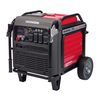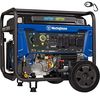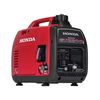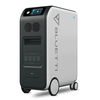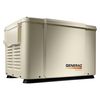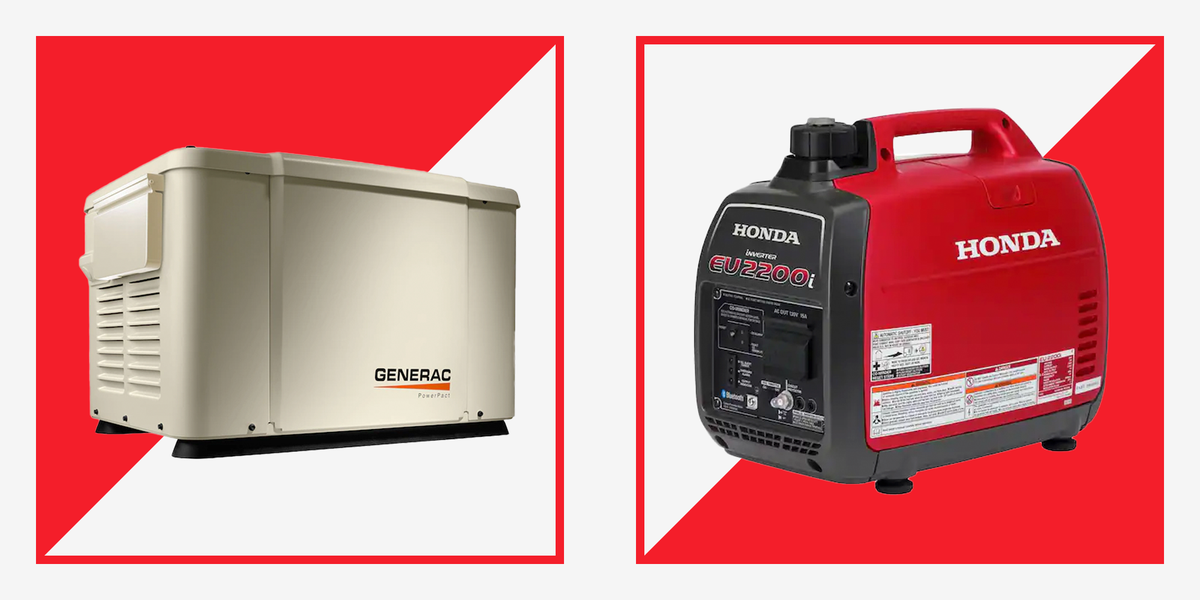
The Best Home Generators in 2023, Tested by Gear Experts
YOU EVER drive through a neighborhood in the middle of a blackout and see that one house with the lights on? While the rest of us are struggling to figure out how we’re going to keep 10 pounds of chicken from going bad, this guy is popping popcorn and queuing up a movie on TV.
If you’re reading this, chances are you’ve already figured out his secret: He’s got a home generator, and if you’ve had enough of candle light and spoiled food, it’s high time you picked up one yourself. There’s a litany of brands, types, and sizes of generators out there though, so before we dive into the specifics, let’s ask the basic questions.
Best Solar Generators | Best Power Stations | Best Camping Gear | Best Emergency Food Kits | Best Outdoor Gear | Best Tech Gadgets
What Type of Home Generator Do You Need?
There are two main types of home generators out there: Portable generators and full-size “standby” generators. Both have their pros and cons, so let’s touch on those briefly.
Portable generators are the most popular option, and there are a few good reasons for that. Most folks shopping for home generators are looking for a way to keep their refrigerator running and a few choice lights and appliances on during a power outage, and even smaller portable gas generators pack enough punch to handle these basics.
Portable generators are also much more versatile than their fixed-base brethren, which is why you’ll often see them powering campsites, tailgates, and RVs as well. Think of it as one purchase that can wear several hats, and you’ll start to see the value in going portable. Speaking of value, portable generators are almost always less expensive than standby units as well, especially considering you’ll have to pay a professional to install a standby generator outside your home.
So why would anyone choose a standby generator? Simple: They’re automatic, reliable, and incredibly powerful. Because standby generators are wired directly into your home’s electrical system, they’re able to automatically detect a power outage and turn themselves on to continue supplying electricity to your home.
That means you don’t have to worry about coming home to a refrigerator full of rotten meat when you’re out of town, or coming home to a freezing cold house after a long day at work. We’ll also mention that certain portable generators are designed to function as limited-capacity standby generators as well, so keep an eye out for that functionality when choosing yours.
Gasoline, Propane, Natural Gas or … Solar?
Another important consideration when shopping for a home generator is the type of fuel it uses. That’s because while most smaller portable generators function off of good ol’ fashioned pump gasoline, larger and more powerful generators typically function on natural gas, propane, or some mixture of the two.
If you’re shopping for a standby generator, this is important because the fuel type of the generator needs to match the fuel type of your home. Again, many units are designed to function off both natural gas and propane, but if you don’t have an existing propane line, you’ll want to double check that.
It’s also important to note most “dual fuel” generators that can run off multiple fuels will produce more electricity with one fuel than the other. Typically gasoline delivers the highest maximum output, followed by propane, and then natural gas. Ultimately the ideal fuel source for your generator is whichever one is most readily available, but just know not all fuels are created equal.
Of course if you don’t care for the smell of gas, the noise of an engine, or the maintenance that comes along with internal combustion, there’s always the solar option. The main drawback of solar generators is that they typically require a considerable start-up cost (solar panels, battery storage, switches, controllers, etc). We won’t get into all the nuanced benefits of adding solar power to your home here, but just know this route is well worth exploring if you’ve got the money and the inclination.
How Much Power Do You Need?
Let’s say your main concern is keeping that refrigerator running to save that 10 pounds of chicken we were talking about earlier. Or maybe that, plus a lamp or two, a TV, and a fan to keep you cool while you wait on the space heater to kick back on. We consider these things to be “the basics” that you’ll run off a generator, and the good news is, you don’t need a great deal of power for the basics.
For all the above, you’ll typically only need about 2,000 watts of running power, which pretty much any portable generator worth buying will supply. Of course we always recommend buying more power than you need to be safe, but just know there’s no reason to run out and spend a small fortune on a 10,000 watt generator.
Now let’s say you want to power your entire house: Lights, air conditioning, washing machine, the whole enchilada. Depending on the size of your home, you’ll likely need a generator between 10,000 watts and 20,000 watts. Chances are you’ll want to find a sweet spot between the two in terms of price and power, but if you really want it all, we see a full-sized standby generator (and the price tag that comes with it) in your future.

